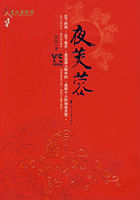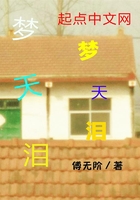When I first came to Tuskegee, I determined that I would make it my home, that I would take as much pride in the right actions of the people of the town as any white man could do, and that I would, at the same time, deplore the wrong-doing of the people as much as any white man. I determined never to say anything in a public address in the North that I would not be willing to say in the South. I early learned that it is a hard matter to convert an individual by abusing him, and that this is more often accomplished by giving credit for all the praiseworthy actions performed than by calling attention alone to all the evil done.
While pursuing this policy I have not failed, at the proper time and in the proper manner, to call attention, in no uncertain terms, to the wrongs which any part of the South has been guilty of. I have found that there is a large element in the South that is quick to respond to straightforward, honest criticism of any wrong policy. As a rule, the place to criticise the South, when criticism is necessary, is in the South--not in Boston. A Boston man who came to Alabama to criticise Boston would not effect so much good, I think, as one who had his word of criticism to say in Boston.
In this address at Madison I took the ground that the policy to be pursued with references to the races was, by every honourable means, to bring them together and to encourage the cultivation of friendly relations, instead of doing that which would embitter. I further contended that, in relation to his vote, the Negro should more and more consider the interests of the community in which he lived, rather than seek alone to please some one who lived a thousand miles away from him and from his interests.
In this address I said that the whole future of the Negro rested largely upon the question as to whether or not he should make himself, through his skill, intelligence, and character, of such undeniable value to the community in which he lived that the community could not dispense with his presence. I said that any individual who learned to do something better than anybody else--learned to do a common thing in an uncommon manner--had solved his problem, regardless of the colour of his skin, and that in proportion as the Negro learned to produce what other people wanted and must have, in the same proportion would he be respected.
I spoke of an instance where one of our graduates had produced two hundred and sixty-six bushels of sweet potatoes from an acre of ground, in a community where the average production had been only forty-nine bushels to the acre. He had been able to do this by reason of his knowledge of the chemistry of the soil and by his knowledge of improved methods of agriculture. The white farmers in the neighbourhood respected him, and came to him for ideas regarding the raising of sweet potatoes. These white farmers honoured and respected him because he, by his skill and knowledge, had added something to the wealth and the comfort of the community in which he lived. I explained that my theory of education for the Negro would not, for example, confine him for all time to farm life--to the production of the best and the most sweet potatoes--but that, if he succeeded in this line of industry, he could lay the foundations upon which his children and grand-children could grow to higher and more important things in life.
Such, in brief, were some of the views I advocated in this first address dealing with the broad question of the relations of the two races, and since that time I have not found any reason for changing my views on any important point.
In my early life I used to cherish a feeling of ill will toward any one who spoke in bitter terms against the Negro, or who advocated measures that tended to oppress the black man or take from him opportunities for growth in the most complete manner.
Now, whenever I hear any one advocating measures that are meant to curtail the development of another, I pity the individual who would do this. I know that the one who makes this mistake does so because of his own lack of opportunity for the highest kind of growth. I pity him because I know that he is trying to stop the progress of the world, and because I know that in time the development and the ceaseless advance of humanity will make him ashamed of his weak and narrow position. One might as well try to stop the progress of a mighty railroad train by throwing his body across the track, as to try to stop the growth of the world in the direction of giving mankind more intelligence, more culture, more skill, more liberty, and in the direction of extending more sympathy and more brotherly kindness.
The address which I delivered at Madison, before the National Educational Association, gave me a rather wide introduction in the North, and soon after that opportunities began offering themselves for me to address audiences there.
I was anxious, however, that the way might also be opened for me to speak directly to a representative Southern white audience. A partial opportunity of this kind, one that seemed to me might serve as an entering wedge, presented itself in 1893, when the international meeting of Christian Workers was held at Atlanta, Ga. When this invitation came to me, I had engagements in Boston that seemed to make it impossible for me to speak in Atlanta.
Still, after looking over my list of dates and places carefully, I found that I could take a train from Boston that would get me into Atlanta about thirty minutes before my address was to be delivered, and that I could remain in that city before taking another train for Boston. My invitation to speak in Atlanta stipulated that I was to confine my address to five minutes. The question, then, was whether or not I could put enough into a five-minute address to make it worth while for me to make such a trip.















